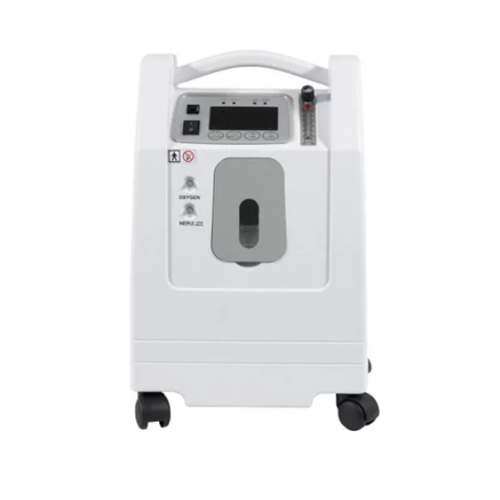In the digital age, where information flows faster than ever before, your personal data is increasingly at risk. When it comes to your medical information, the stakes are even higher. Your health records are a treasure trove of intimate details about your well-being, treatments, and medical history.
Ensuring the confidentiality and security of this information is paramount, not just for your peace of mind but also for the integrity of the healthcare system. This is where the Health Insurance Portability and Accountability Act (HIPAA) comes into play.
HIPAA is more than just another acronym in the healthcare industry. It represents a critical piece of legislation designed to protect your rights and privacy as a patient. These safeguards extend a reassuring hand, allowing you to engage with the healthcare system with confidence, knowing that your personal health information remains shielded from unauthorized access and potential misuse. Here are three pivotal ways HIPAA laws work to shield your healthcare data from prying eyes.
Strict Access Controls
When safeguarding your healthcare data, HIPAA acts as a layer of security, protecting the fortress of your personal health information. At the heart of HIPAA’s defense strategy is the principle of strict access controls, an important concept that is central to the act’s mission. It ensures your health information, including any personal identifiers, is only accessed by authorized individuals.
These include healthcare professionals directly involved in your care, insurance personnel handling your claims, and even, under certain circumstances, family members you’ve been granted access to. Electronic medical records are stored securely, and with a quick elasticsearch, administrative personnel can pull requested information after verifying clearance for access.
One of the cornerstones of HIPAA’s access controls is the concept of the “minimum necessary” standard. This means that healthcare providers should only access or disclose the minimum amount of information required for a particular purpose. For example, if you’re visiting a specialist for a specific condition, they should only access the relevant parts of your medical history pertinent to that condition.
Informed consent empowers you to maintain control over your healthcare information, ensuring it’s not shared without your express permission. There’s a common misconception that your medical records belong to you. They actually belong to the healthcare organization that provided the service, but you are entitled to request a copy of your records for personal review.
HIPAA’s strict access controls, in essence, establish security around your personal health information. This ensures that unauthorized individuals, whether they are curious employees, cybercriminals, or even nosy family members, cannot breach the walls and access your medical history without proper authorization.
Enhanced Data Encryption
With the convenience of electronic health records (EHRs) comes a critical responsibility: safeguarding these records from potential threats. This is where HIPAA steps in, like digital armor, to protect the security of your health information through enhanced data encryption. The transition from paper-based records to electronic health records has revolutionized healthcare.
It allows for faster access to critical patient information, seamless sharing among healthcare providers, and enhanced decision-making. But this digital transformation also brings new challenges, particularly in ensuring the confidentiality and integrity of your health data. HIPAA requires the use of advanced encryption techniques in the storage and transmission of electronic health records. Implementing a robust email archive policy is crucial for maintaining organized records, ensuring compliance, and protecting against data breaches.
Encryption, in simple terms, involves converting your health data into a coded language that only authorized users can decipher. You can think of it as translating your medical history into an intricate secret code.
HIPAA’s encryption requirements cover both data at rest (when your health information is stored) and data in transit (when it’s being shared between healthcare providers or transmitted to insurance companies). This comprehensive approach ensures that your health information remains safeguarded at all times, whether it’s sitting in a digital database or traveling through cyberspace.
Strict Penalties for Violators
HIPAA doesn’t just stop at establishing rules to protect your healthcare data; it also serves as a powerful sword to ensure these rules are followed rigorously. The third crucial way HIPAA safeguards your healthcare privacy is by imposing strict penalties on those who dare to violate its regulations. This enforcement mechanism acts as a powerful deterrent, emphasizing the gravity of maintaining the privacy and security of your health information.
One of the key elements of HIPAA is its emphasis on accountability. Healthcare providers, insurance companies, and anyone handling your health data are acutely aware of the consequences of non-compliance. These consequences extend to both financial penalties and potential criminal charges. HIPAA sets out a tiered system of financial penalties based on the severity of the violation.
These penalties can range from thousands to millions of dollars, depending on the extent of the breach and whether it’s a one-time occurrence or a persistent issue. These fines can have a substantial impact on a healthcare organization’s bottom line and reputation.
By imposing strict penalties, HIPAA empowers you as a patient to hold healthcare organizations accountable for the protection of your health information. It reinforces your right to privacy and sends a clear message that violations of this privacy will not be taken lightly.
Final Thoughts on Healthcare Privacy
In a world where data privacy is increasingly under threat, HIPAA protects your rights as a patient. Its strict access controls, data encryption standards, and stringent penalties for violators work together to safeguard your healthcare information. By understanding these protections, you can feel empowered to take control of your healthcare journey, secure in the knowledge that your privacy is a priority.
Remember, HIPAA is not just a set of rules for healthcare providers—it’s also a set of rights for you, the patient. Take advantage of these protections and advocate for your privacy when seeking medical care. Your health information should always be handled with the utmost care and respect, and HIPAA ensures that this is the case.
*****





























